- Policy paper
- 24 November 2025
Navigating the politics of backlash to sexual and reproductive health and rights
- Author: Evie Browne, Aatif Somji
- Published by: ODI Global
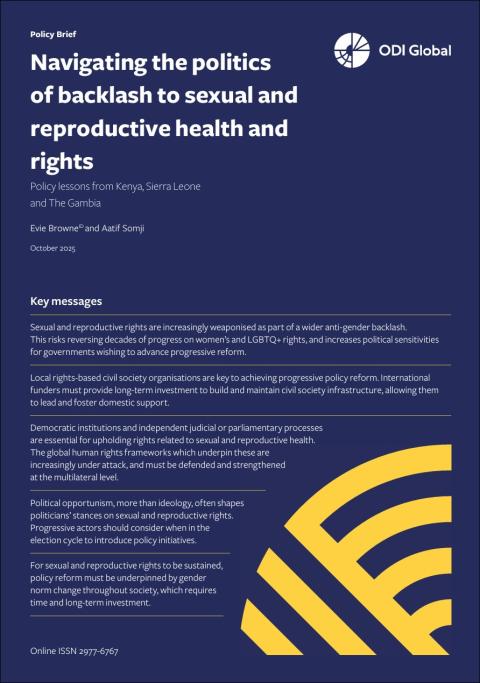
Policy lessons from Kenya, Sierra Leone and The Gambia
Following an in-depth political economy analysis of three policy initiatives with significant consequences for gender equality and reproductive rights in Kenya, Sierra Leone and The Gambia, this policy brief distils essential lessons for both national and international actors wanting to advance progressive reforms.
With a global backlash against gender equality, efforts to roll back and prevent gender equality policies and programmes are on the rise. Sexual and reproductive health and rights (SRHR) are a common target, with political actors and interest groups, often supported by transnational religious organisations, collaborating to reassert traditional patriarchal values. This has considerably increased the political risks for national governments that wish to advance progressive policy initiatives on SRHR, and women’s rights more broadly.
Drawing on insights from different country contexts, this policy brief explores the politics of backlash in relation to legislative initiatives on: LGBTQ+ rights in Kenya; access to safe abortion in Sierra Leone; and female genital mutilation (FGM) in The Gambia. It shares analysis on the role of civil society, national and international institutions, locally-responsive narratives, political timing, religious influence and ideology, outlining recommendations for how to strategically engage to advance SRHR reform.
Key messages
- Sexual and reproductive rights are increasingly weaponised as part of a wider anti-gender backlash. This has increased political sensitivities for governments wishing to advance progressive reform, and timing often influences success or failure.
- Political opportunism, more than ideology, often shapes politicians’ stances on sexual and reproductive rights.
Democratic institutions and independent judicial or parliamentary processes are essential for upholding rights related to sexual and reproductive health. Global human rights frameworks are often critical in these cases, so must be defended and strengthened at the multilateral level. - Local rights-based civil society organisations are key to achieving progressive policy reform and are best placed to lead and foster domestic support. International funders should invest long-term funding in civil society infrastructure.
- To be sustained, progressive policy reform must be underpinned by gender norm change throughout society, which requires time and long-term investment.
- Countries / Regions:
- Global, Sierra Leone, The Gambia, Kenya
Related resources
Blog
12 January 2026
Published by: ODI Global

Blog
5 January 2026
Published by: ALIGN

Briefing paper
24 November 2025
Published by: ODI Global, ALIGN
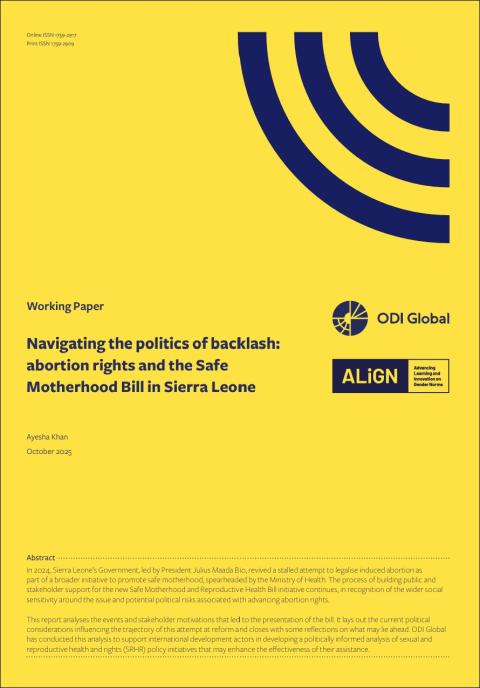
Briefing paper
5 November 2025
Published by: ODI Global, ALIGN
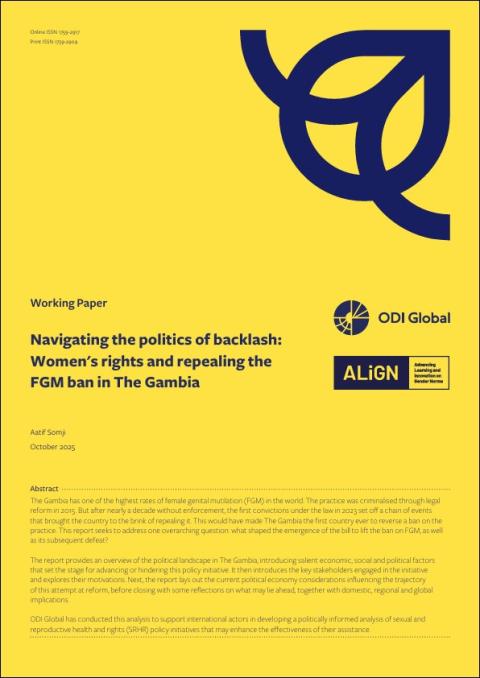
Briefing paper
5 November 2025
Published by: ODI Global, ALIGN
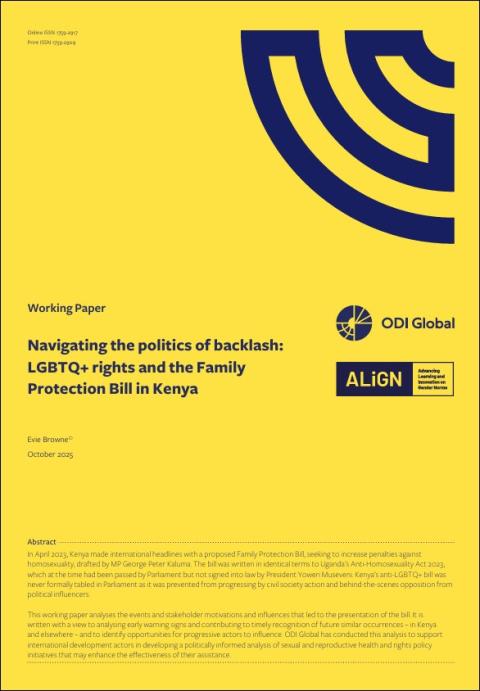
Report
6 October 2025
Published by: ODI Global
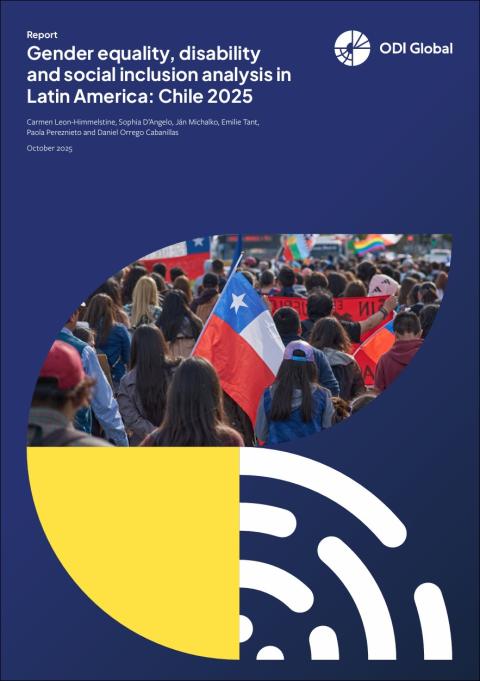
Briefing paper
8 April 2025
Published by: European Politics and Institutions Programme
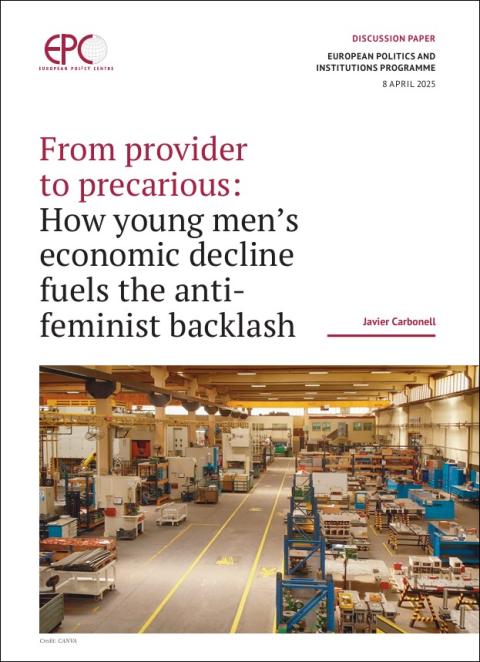
Report
14 April 2025
Published by: ALIGN, IfD
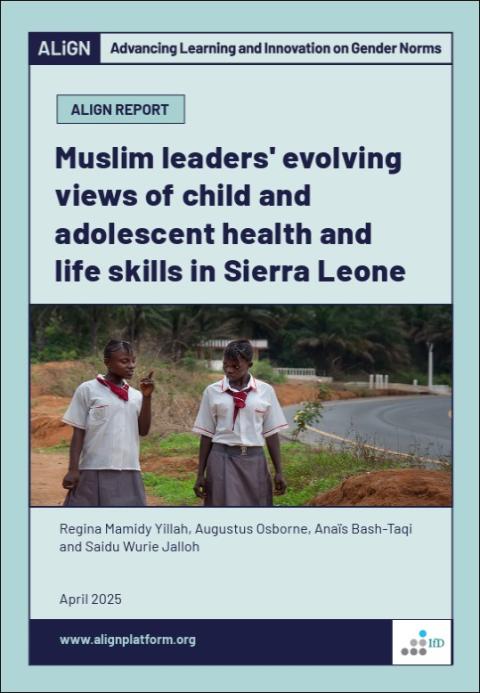
Report
26 March 2025
Published by: ALIGN, Aahung
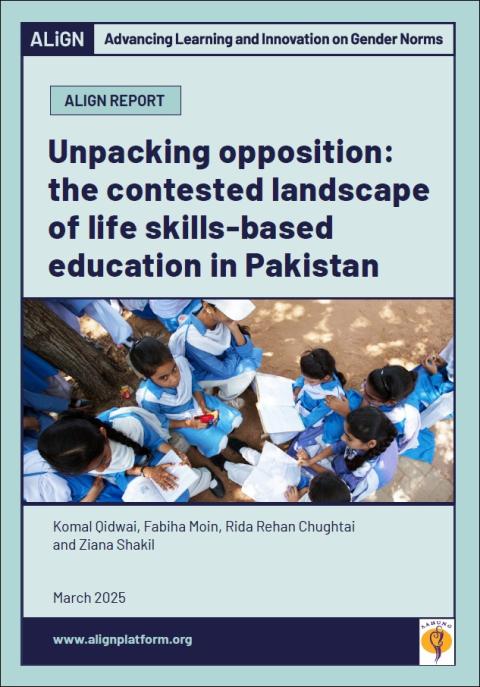
Report
12 February 2025
Published by: ODI Global
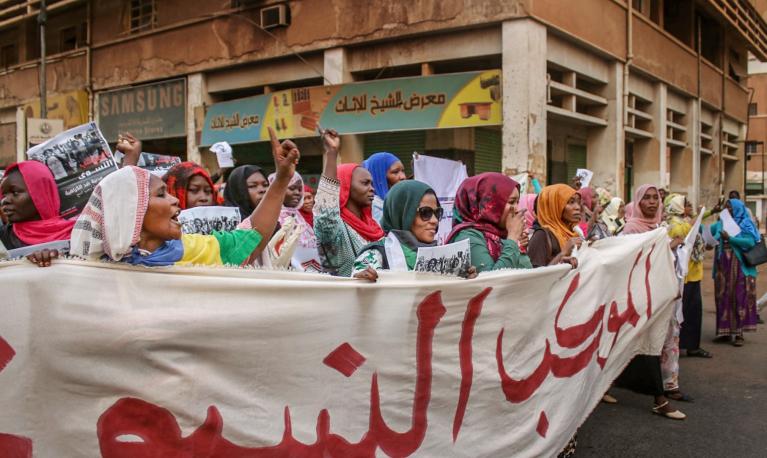
Blog
19 December 2024
Published by: ALIGN

Report
13 November 2024
Published by: ALIGN
